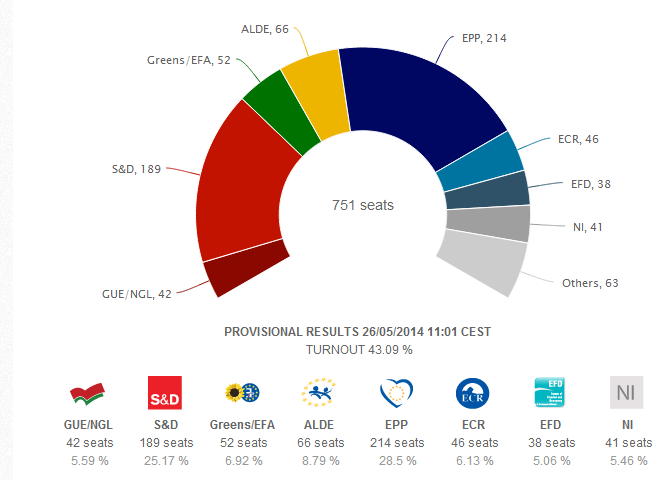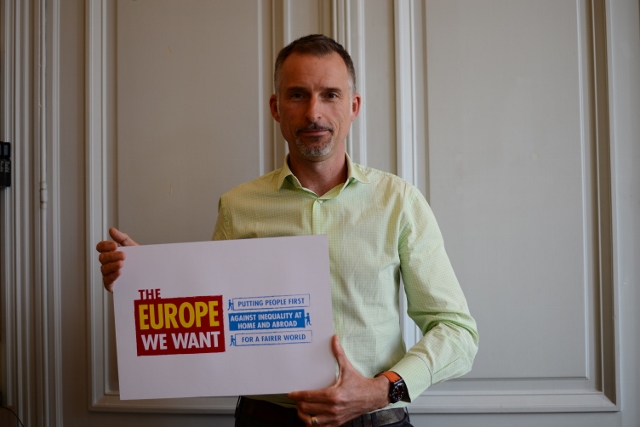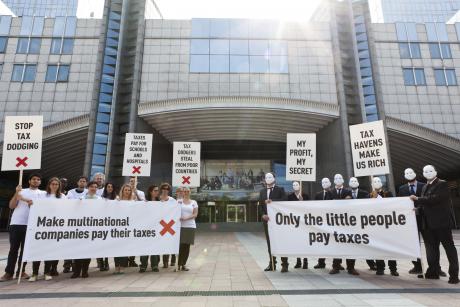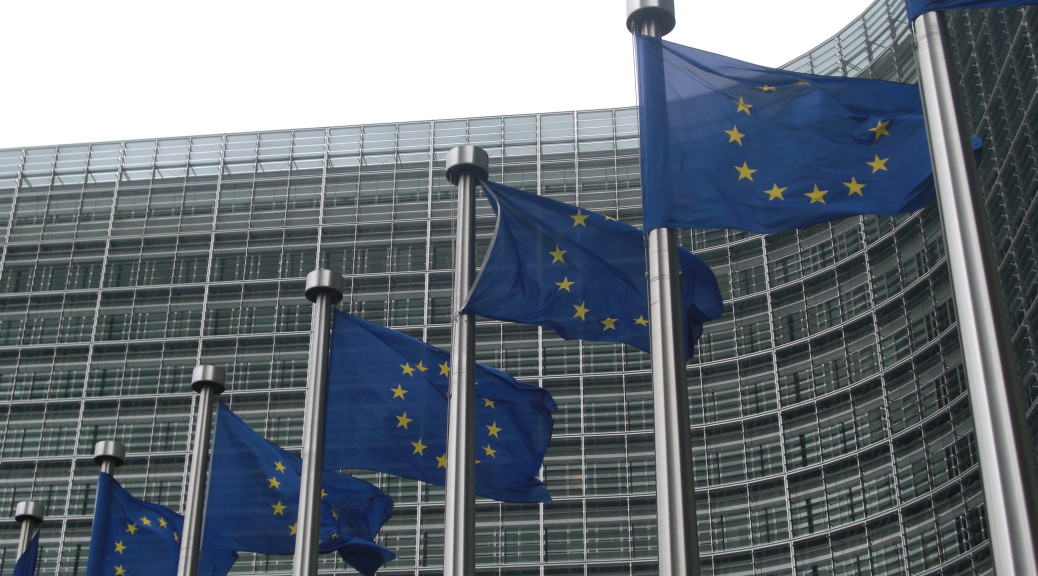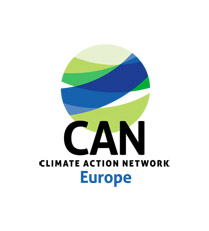Contribution from the Climate Action Network Europe
With the European elections approaching, CAN Europe wanted to provide the European public with some background information on how Members of the European Parliament (MEPs) and their national & European political parties have voted on climate and energy issues in the last five years. Were they supportive or obstructive?
So CAN Europe decided to do some analysis on ten crucial climate and energy votes that took place during the 2009-2014 parliamentary term.
We did this with the hope of giving European citizens some useful information and broadening the opportunity for citizens to act on their desire for more climate action in the upcoming EU elections. This can be done by voting for MEPs who supported stronger climate policies and are running for re-election or by casting their votes for the most supportive parties.
We have looked at votes related to energy targets, greenhouse gas emissions targets, renewable energy policies, climate change in development policies, emissions trading and monitoring. You will find a complete description of the methodology at the end of this blog.
Our analysis and what we found:
Through our analysis we have tried to bring out the major patterns that arose from the voting records that we collected for all MEPs of the present term.
The assessment focuses firstly on MEPs in general, secondly on their European political groups, thirdly on their member states, and lastly on their national parties.
How did our elected officials do?
The average score of all MEPs is good (57%), and the median is 60%.
More than a third (36%) of all MEPs achieved a score of very good;
Less than a third (27%) scored good;
Less than a quarter (22%) fell into the category of bad;
And the remainder (15%) scored very bad.
The majority of MEPs scored either very good or good, which in general reflects the fact that out of the three EU institutions (European Commission, European Council and European Parliament) the Parliament is still the most supportive of increased climate action. Unfortunately in the current decision-making process, (in particular during the so-called trialogue between the three institutions) the Parliament is often less influential. However, due to recent legislative changes, the Parliament’s influence will increase in the future.
This change is one of the reasons why it is so important for citizens to register and vote in the EU elections. Through casting our votes, we have a direct say on who will influence important issues such as climate change, human rights, equality and poverty. So every vote counts!
The position of national political parties on climate ambition:
It is difficult to quantify in this blog how all of our national political parties scored.
You can find a list of all political groups and the national parties here!
But to give you a flavor of how some national parties performed, we’ve picked out a few examples. Below is a short list of parties that scored worse than their European counterparts (ie. they scored below the average of their European group).
1. Despite coming 1st out of 7 European groups, the European Greens dropped marks due to the votes of a Spanish group member (score 33%).
The same trend appeared in the European socialists group (ranked 2nd after the Greens); a Polish party member scored badly (30%), and a Luxembourgish member party scored even worse (10%).
2. Among the European groups that scored average or good, some of their national members did not come up well;
within ALDE (ranked 4th out of the EU groups) some national political parties in the following countries scored quite badly; Latvia, 40%; Greece, 40%; Germany, 35%; Netherlands, 33%; and Lithuania, 30%.
3. In the category of “bad” groups, there were national parties that were even worse!
The following countries have party members of ECR (ranked 6th out of 7 European groups) and they scored worse;
Czech Republic, 24%,
Lithuania, 20%,
United Kingdom, 20%,
Prawo i Sprawiedliwość (Poland, 19%), and
Polska Jest Najważniejsza (Poland, 17%).
However, there were also some national groups who performed better than their European counterparts!
For example in the European People’s Party (EPP) some national groups in the following the following countries scored better than the European group;
Parti Radical (France, 75%),
Kristdemokraterna (Sweden, 70%),
Centre Démocrate Humaniste (Belgium, 70%),
Det Konservative Folkeparti (Denmark, 70%),
Österreichische Volkspartei (Austria, 65%),
Partido Social Democrata (Portugal, 63%),
Christen Democratisch Appèl (Netherlands, 62%),
Kansallinen Kokoomus (Finland, 62%),
Slovenská demokratická a kresťanská únia – Demokratická strana (Slovakia, 60%), Christlich Soziale Partei (Belgium, 60%),
Erakond Isamaa ja Res Publica Liit (Estonia, 60%),
Fine Gael Party (Ireland, 60%);
Also, in ECR, the following national parties scored better:
ChristenUnie (Netherlands, 70%),
Conservatori e Social Riformatori (Italy, 60%).
As mentioned above, this is just a flavor based on voting behavior that stood out to us.
A full overview of any national party can be found on this website: http://www.climnet.org/voteforclimateaction
And for a full list of national parties that have membership in the 7 European groups please check it out on the Europe We Want website
Methodology
The votes in question cover the following proposals:
1. To improve the EU’s Emissions Trading Scheme;
2. The Mechanism for Monitoring and Reporting emissions;
3. The 2030 renewable energy and energy savings targets;
4. The 2020 greenhouse gas emissions reductions target;
5. The 2030 greenhouse gas emission reduction target;
6. Renewable energy policies;
7. Energy savings policies;
8. The European support to the international climate negotiations;
9. The integration of climate change in EU development policies;
10. And provision of international climate finance.
How the scores were based:
The scores were based on the votes of all MEPs on these ten issues. For each vote, MEPs were either given a point for voting positively (i.e. either ‘for’ or ‘against’, depending on if the text furthered or hindered the development of climate and energy policies) or no points for any of the other voting behaviours (i.e. “against”, ‘abstain’, ‘absent’, ‘didn’t vote’). Overall scores were assigned to each MEP by averaging out their points. The same was done for the European Parliament’s political groups and all national political parties represented at the European Parliament, based on the points of their respective MEPs. Finally, scores were grouped into four bands that we named for ease of use: very good (75-100%), good (50-74%), bad (25-49%) and very bad (0-24%).
Based on our assessment of fulfilling the human rights of European citizens we should now ask ourselves whether our MEPs consider our human rights when they vote on climate and environment related issues.

